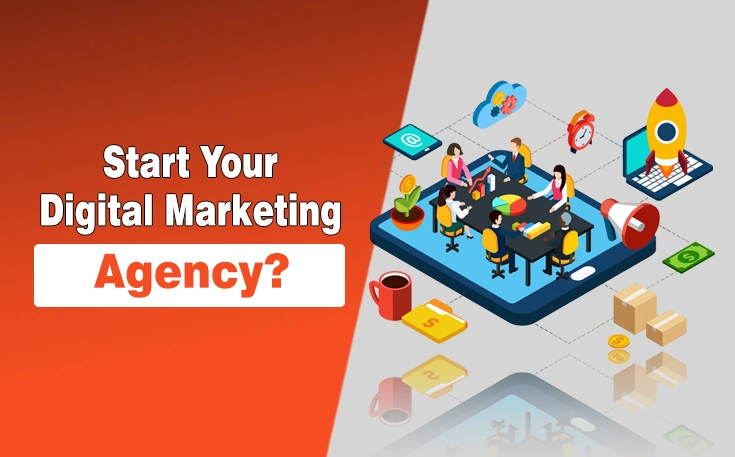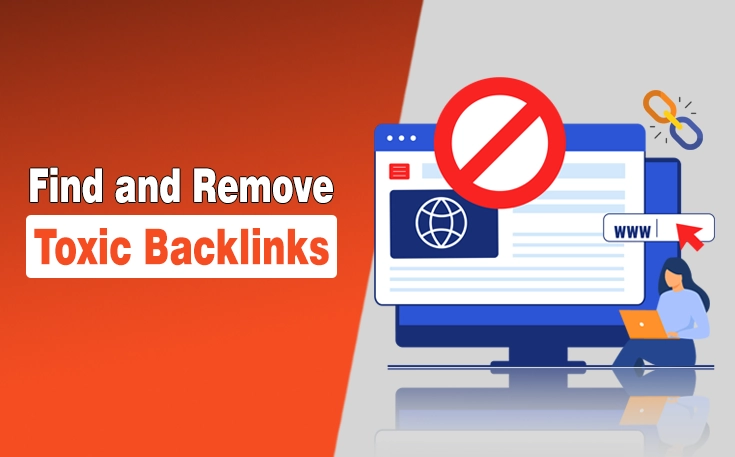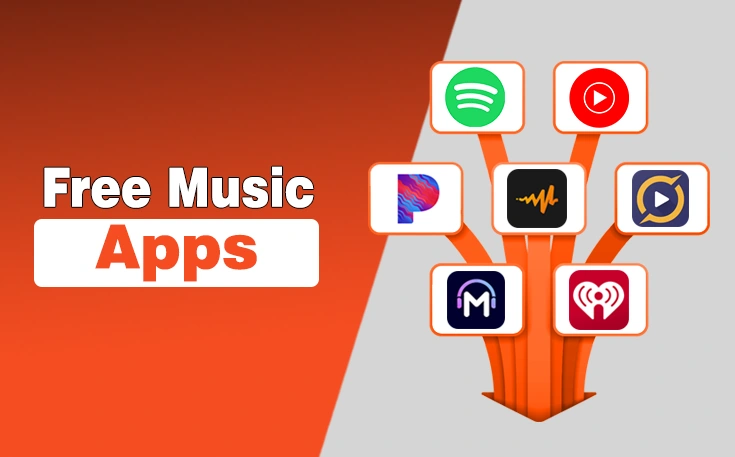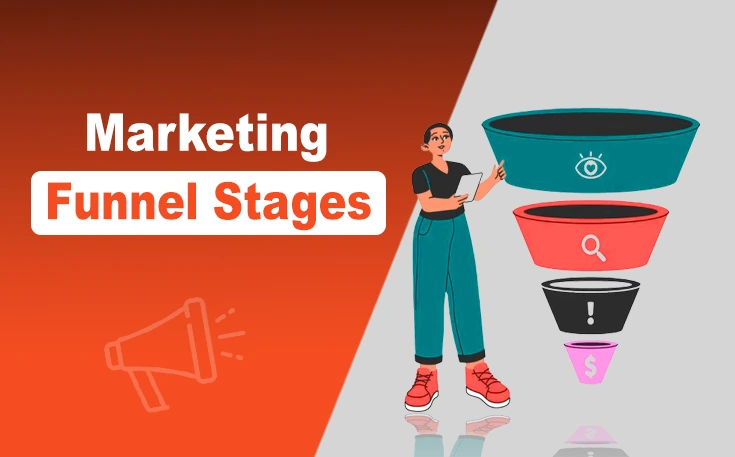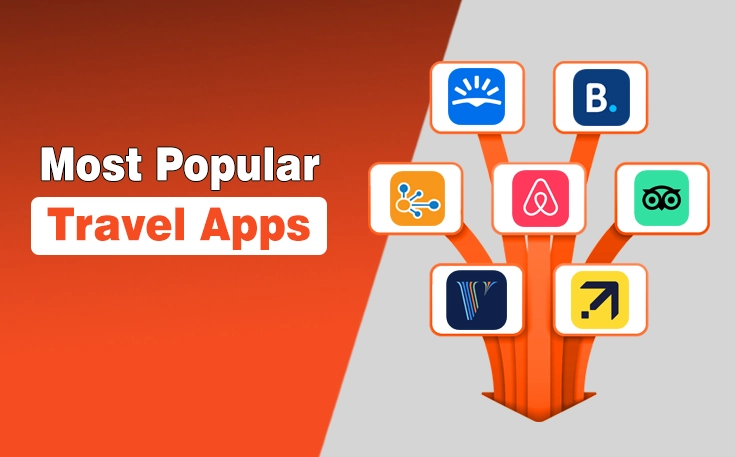When you want to start a digital marketing agency, it may sound overwhelming at first. I remember when I first thought about it, it felt like jumping into the deep end without a life jacket. But as I slowly understood the steps, it became clear that building a successful agency is absolutely possible if you approach it smartly.
If you are someone who dreams of being your own boss, helping brands grow online, and creating a lasting impact, this guide will walk you through every detail you need to know. Stick with me, because I am going to make sure you get the full picture, not just a basic overview.
What is a Digital Marketing Agency?
Before you even think about starting your agency, you have to truly understand what is a digital marketing agency.
Digital marketing is about strategy.
A Digital Marketing Agency is a company that builds full strategies that align with a client’s business goals. It understands customer psychology, designs campaigns that convert, and uses technology to automate and optimize.”
When you run a digital marketing agency, you are handling multiple channels and providing different services. When you look at WebTech Solutions services, you will find out that we offer the following services.
- SEO
- PPC Advertising
- Content Marketing Services
- Email Marketing Services
- Social Marketing
- Affiliate Marketing
- Link Building
Knowing how each of these channels works will be key to offering the right services.
How to Start Your Own Digital Marketing Agency?
In the under section, I am going to provide you with a step by step guide that will help you find a seamless way to launch your own digital marketing agency and pave your way to ultimate success.
1. Learn Basic Digital Marketing Services
The first thing you have to do in your campaign to start a new digital marketing agency is you have to understand the key and basic digital marketing services. The primary ones you should focus on are below:
- Search Engine Optimization: SEO is about helping businesses rank higher on search engines like Google. It is technical and takes time, but it can be extremely rewarding for your clients and for you.
- Pay Per Click Campaigns: Running Google ads and ads on Facebook, Instagram, and LinkedIn for businesses falls under PPC. If you are good with numbers and analytics, this can be a profitable service to offer.
- Social Media Marketing: Managing and creating content for social media platforms like Instagram, Facebook, TikTok, and LinkedIn can form a major part of your agency’s services.
- Content Marketing: This involves creating blogs, videos, podcasts, infographics, and other types of content to attract and engage a target audience.
- Email Marketing: Email remains one of the highest ROI marketing channels. Managing email campaigns can be a great niche.
- Web Design and Development: Some agencies also offer building and managing websites. This can pair well with SEO and content marketing.
2. Pick a Profitable Niche
Choosing a niche is one of the smartest moves you can make when you are on your way to start your digital marketing agency. Instead of trying to serve everyone, I learned that focusing on a specific industry or audience actually makes you stand out and get clients faster.
Why Does a Niche Matter?
When you pick a niche, you can speak directly to your audience’s problems. You are not just another digital marketing agency. You are their digital marketing expert. It builds trust faster and positions you as a specialist rather than a generalist.
And when it comes to picking a niche, ask yourself these questions:
- What industries do I understand deeply?
- Where do I see a gap in digital marketing services?
- Are there industries that spend heavily on marketing, like healthcare, real estate, or ecommerce?
By answering these, you will land on a niche that is profitable and enjoyable to work in.
3. Create a Solid Business Plan
This is where most people skip and then struggle later. Trust me, if you want your agency to succeed, you need to treat it like a real business from day one.
What your business plan should include
- Your mission and vision
- Your niche and target audience
- Services you will offer
- Pricing structure
- Revenue goals
- Marketing and sales strategy
- Operations and workflow
When you write all this out, you give your agency a roadmap instead of wandering aimlessly.
4. Pick a Business Model That Works for You
Once you decide what services you will offer, it is time to pick a business model.
Different agencies operate differently based on their resources and goals. Let me walk you through a few models:
- Project Based Model: You charge clients for a specific project such as building a website or setting up a social media campaign. Once the project is done, so is the relationship unless they renew.
- Retainer Model: This is my favorite model because you get paid a set fee every month for ongoing work. It brings predictability and stability to your income.
- Hourly Model: You can charge clients by the hour for consultation, campaign management, or specific tasks. While simple, it can limit your earnings if not priced properly.
- Performance Based Model: In this model, you get paid based on the results you deliver, like leads generated or sales closed. It is high risk, high reward, and requires strong confidence in your skills.
5. Set Up Your Legal Structure
This part might sound boring, but it is absolutely necessary.
You need to protect yourself legally and look professional to clients. Some of the key legal steps you have to take to start a new digital marketing agency are the following:
- Register your business name
- Choose Your Business Structure
Depending on your country, you may need to register as a sole proprietor, LLC, or Private Limited Company. Consult a local business advisor to make sure you are legally safe.
Handling legal basics upfront saves you from major headaches later on. Further, you have to do the following:
- Open a Business Bank Account: Keep your personal and business finances separate right from the start. It will save you from a lot of headaches later.
- Get a Simple Accounting System: Use tools like QuickBooks or FreshBooks to track your income, expenses, and taxes easily.
6. Build Your Own Brand and Website
If you want clients to trust you with their brand, your own brand needs to look sharp first. Here is how you can start:
- Pick a Strong Name: Choose a name that is simple, memorable, and gives a clear idea about what you do. Avoid trying to be too fancy.
- Create a Professional Website: Your website is your online storefront. It should explain your services clearly, showcase client results (or personal projects at the beginning), have a strong About page, and give people an easy way to contact you.
- Design a Clean Logo: A professional logo adds trust. You can get a simple one made using Canva or hire a designer from platforms like Fiverr.
The above mentioned points are the necessary elements that will help you build and establish your own brand. I have also enlisted some additional points below that will assist in building authority for your digital marketing agency.
- Active social media profiles on LinkedIn, Facebook, and Instagram
- A portfolio section showcasing sample work, even if it is mock projects initially
- Client testimonials, if you have done work for free or low cost to build experience
Pro Tip: Your online presence acts as your digital storefront, so invest time and care into it.
7. Learn Essential Skills or Hire Smartly
As the owner, you need a strong grasp of digital marketing basics, even if you plan to hire a team later. The skills you must understand
- SEO fundamentals like Keyword Research, On Page SEO, Off Page SEO, Technical SEO, Local SEO, Semantic SEO, and International SEO.
- PPC advertising (Google Ads, Facebook Ads Manager)
- Social media management and strategy
- Content creation and copywriting
- Email marketing funnels
- Basic data analytics and reporting
You do not need to master all of them but you should be fluent enough to talk to clients confidently and manage your team effectively.
Pro Tip: If you cannot do it all yourself, hire specialists who can fill in the gaps.
8. Master the Essential Tools of the Trade
You may start a digital marketing agency, but you cannot run it without using the right tools. Investing in good tools makes your work faster, better, and more professional.
Here are some must-have categories:
- Project Management Tools: Trello, Asana, and ClickUp help you manage client projects smoothly without missing deadlines.
- SEO Site Checker Tools: SEMrush, Ahrefs, Moz, and UberSuggest help you track rankings, audit sites, and find backlink opportunities.
- Social Media Marketing Tools: Buffer, Hootsuite, and Later can schedule posts in advance across multiple platforms, which saves you loads of time.
- Email Marketing Tools: Mailchimp, ConvertKit, and Brevo help you manage email campaigns professionally.
- CRM Software: Managing clients well is half the battle. HubSpot and Zoho CRM help you track client communication, sales, and project progress easily.
9. Build a Portfolio (Even If You Do Not Have Clients Yet)
I know you might be thinking: “How can I build a portfolio without clients?”
Here is the answer: “Create mock projects.”
Design sample ad campaigns, create a pretend SEO strategy, and build a sample website. Treat these like real client projects and showcase them on your website.
Also, you can:
- Volunteer to manage marketing for a friend’s business
- Offer discounts to your first 3 clients in exchange for permission to display their results
- Run marketing campaigns for yourself and use the results as proof
10. Find Your First Clients
Here comes the real challenge that most agencies struggle with at first.
Finding that first client is tough, but not impossible if you are strategic. I also have been through this situation, but didn’t lose hope. Eventually, I created a strategy, and it really worked. Here, I am providing you with some proven ways to get initial clients
- Offer your services at a discounted price to a few local businesses to build a portfolio
- Use LinkedIn to reach out to business owners personally
- Attend local business networking events
- Partner with web developers, graphic designers, or IT firms who can refer clients to you
- Create educational content that showcases your expertise
Pro Tip: Focus on building relationships, not just making sales, as it helps you greatly in the long run in the digital world.
11. Create a Strong Client Onboarding Process
When you land your first client, you do not want to look confused. A solid onboarding system makes you look professional and builds trust immediately.
Your onboarding should include:
- Welcome email
- A detailed questionnaire about their business goals
- Clear timeline of project milestones
- An agreement or contract outlining deliverables and expectations
- Invoice for payment
12. Deliver Results and Build Trust
Getting a client is only step one.
If you want referrals and long-term success, you must deliver great results. It will build your trust with clients and establish you as a reputable brand. When it comes to delivering SEO services, you have to follow White Hat SEO techniques. A similar rule is for other services.
When it comes to how to overdeliver, you should:
- Set realistic expectations during onboarding
- Communicate weekly with updates and reports
- Show progress clearly through KPIs (Key Performance Indicators)
- Be proactive and suggest new ideas without waiting for clients to ask
Pro Tip: When you make clients feel like you are truly invested in their growth, they will not only stay but also refer others to you.
13. Build Scalable Systems
As you get more clients, you cannot manually manage everything forever. That is where systems come in. Good systems help you deliver consistent quality without burning out. The key systems you should create are:
- Client onboarding process
- Campaign creation templates
- Reporting templates
- Project management system (using tools like Trello, Asana, or Monday.com)
- CRM to manage client interactions and leads
14. Hire and Grow Your Team
You can only go so far as a solo founder.
At some point, if you want to scale, you need help. Therefore, you now have to hire professionals and build a strong team that will help you in accomplishing tasks on time. To find the right candidates, here are some smart hiring steps:
- Start by hiring freelancers for specialized tasks
- Build a small core team of strategists, designers, and ad managers
- Create a strong internal culture based on communication and results
- Train your team with clear SOPs (Standard Operating Procedures)
Pro Tips: Hiring slowly and training well is better than rushing and damaging your reputation.
15. Focus on Branding and Authority Building
If you want clients to come to you instead of you chasing them, you need to build authority in your niche. The following strategies I have implemented to build authority in my own niche:
- Write insightful blog posts
- Create a YouTube channel or podcast around marketing in your niche
- Speak at webinars or small events
- Collaborate with other experts and exchange audiences
- Publish case studies showing your client success stories
Pro Tip: Authority brings inbound leads and lets you charge premium prices. Hence, you can increase your revenue stream.
16. Scale Smartly Without Burning Out
Once you have some consistent clients and revenue, the next goal is to grow, but grow smartly. Here are a few tips from my experience:
- Start Outsourcing: Hire freelancers for design, copywriting, ads management, and more. This frees up your time to focus on bigger-picture strategies.
- Build a Core Team: As revenue grows, think about hiring a small team of employees: maybe a project manager, content creator, or PPC specialist.
- Offer Packages Instead of Custom Quotes: Creating service packages (like a basic SEO package, a standard social media package) makes selling easier and faster.
- Focus on Higher Ticket Clients: It is better to have 5 clients paying $3000 per month than 30 clients paying $500 each. Always aim to work with businesses that value quality and have decent marketing budgets.
17. Stay Updated and Evolve Constantly
Digital marketing changes almost daily.
The strategies that worked six months ago might not work today. That’s why you have to stay ahead by understanding the new trends and implementing them right away.
- Follow industry news through sites like Search Engine Journal, HubSpot Blog, and Neil Patel
- Take new courses every few months
- Experiment with new tools and strategies
- Be flexible to pivot your services based on what clients really need
Now, I Want You to Know That
When it comes to how to start your own digital marketing agency, the process is not easy, but it is absolutely worth it if you are committed. You are not just building a business, you are building a future where you control your time, income, and impact.
Every step I shared here is something I personally believe makes a difference between agencies that survive and those that truly thrive. Now it is your turn to take action, learn continuously, and create something truly powerful.
You have everything you need to start. The only thing left is to begin.

